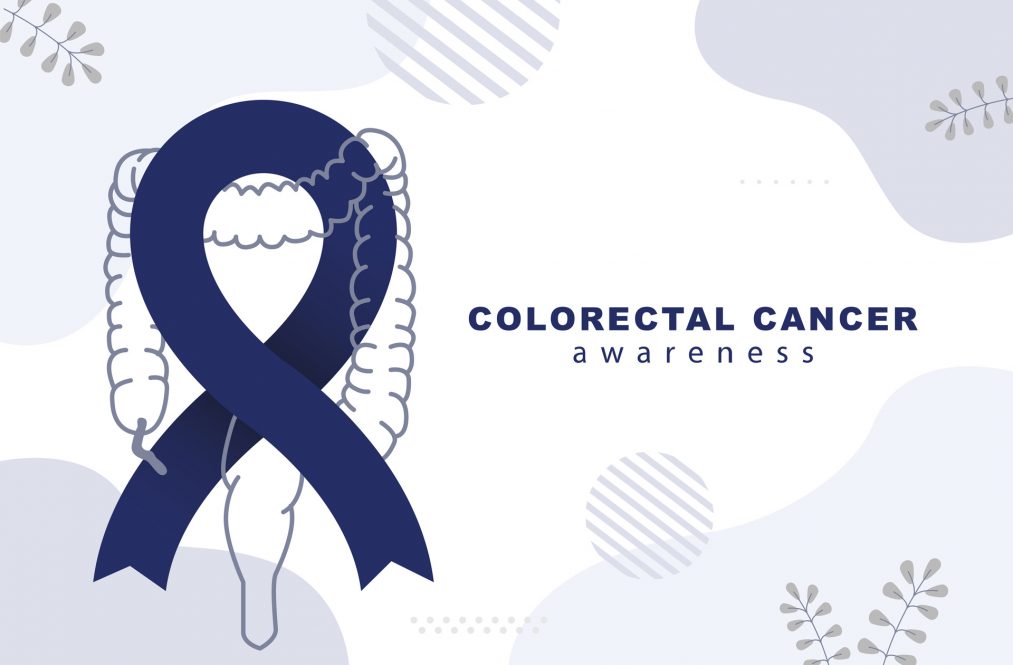Excluding skin cancers, colorectal cancer is the third most common cancer diagnosed in both men and women in the United States and is the third leading cause of cancer-related deaths in both men and women, and it is the second most common cause of cancer deaths when numbers for men and women are combined. It is expected to cause about 52,550 deaths during 2023.
The death rate from colorectal cancer among older adults has been dropping in both men and women for several decades, due to regular colonoscopies and lower rates of smoking. However, since the 1990s, the rate of colorectal cancer has been rising steadily among adults younger than 50. Not only that, but more younger people are dying from the disease. The American Cancer Society reports that people born in 1990 have double the risk of colon cancer and quadruple the risk of rectal cancer as people born in 1950.
Nobody knows for sure why colorectal cancer numbers are rising in young people. Sedentary lifestyle, overweight and obesity, smoking, heavy alcohol use, low-fiber, high-fat diets, or diets high in processed meats, and other environmental factors have all been associated with the disease.
Colorectal cancer, also known as colon cancer, is a disease in which cells in the colon or rectum grow out of control. The colon is the large intestine or large bowel. The rectum is the passageway that connects the colon to the anus.
New research shows obesity may be contributing to increasing rates of colorectal cancer among younger Americans. According to the National Cancer Institute, colorectal cancer is 1.3 times as likely in people with obesity.

“We know that having excess body fat increases the risk of developing colorectal cancer,” says Dr. Joel Levine, co-director and founding director, Colon Cancer Prevention Program at the Carole and Ray Neag Comprehensive Cancer Center at UConn Health. “Excess weight increases insulin and related hormones in the blood that can encourage cancer growth. Plus, excess fat can create an environment that is friendly for inflammation. This can also contribute to the growth of cancer.”
To lower your risk of colon cancer, follow a healthy eating plan and get regular physical activity. Most of the discussions about the probable causes of early-onset disease came together on three interrelated factors: diet, bacteria in the gut, and inflammation. There is mounting evidence linking an unhealthy diet, one high in processed meat and fat, and low in fruits and vegetables to early-onset colorectal cancer.
Other scientists have turned their focus to bacteria that live in the gut, also called the gut microbiome. Certain types of bacteria have been marked as accomplices in the growth and spread of colorectal cancer, and some may affect how well certain cancer treatments work.
Changes in the gut microbiome may be influencing the increasing rates of colorectal cancer in adults under 50. Studies have shown that diet, obesity, exercise, and some drugs (such as antibiotics) can all change the number and types of bacteria in our gut.
In addition, certain chronic diseases, including ulcerative colitis and Crohn’s Disease, with long-term low-level surface inflammation, can increase cancer risk.
As scientists continue investigating why colorectal cancer cases remain on the rise among younger adults, knowing what symptoms to be on the lookout for is important. Unfortunately, many people with colon cancer may not experience symptoms until further along in the disease.
Symptoms of colorectal cancer may include:
• Changes in bowel habits or stool character that last longer than a few days, such as constipation and diarrhea.
• Rectal bleeding (bright red blood)
• Blood in stool
• Abdominal pain or cramping
• Unintentional weight loss
• Fatigue and weakness
• Persistent feeling that you need to have a bowel movement, even after using the restroom.
Although the root causes behind the increase in colorectal cancer among young adults remain unknown, it is important to know your family history of colon cancer, get regular medical checkups, exercise, and avoid smoking cigarettes and drinking alcohol to excess.
Another key step in reducing your risk of colorectal cancer is understanding the screening process, including when to start and what options are available.
Current ACS guidelines recommend that people at average risk of colorectal cancer begin screening at age 45. If you have additional risk factors, like inflammatory bowel disease (IBD), polyps, a history of abdominal radiation for cancer, certain hereditary syndromes, or a family history of colorectal cancer or certain polyps, you may need to be screened earlier or more often.
Colorectal cancer develops from polyps (abnormal growths) in the colon or rectum. Screening tests can find precancerous polyps so that they can be removed before they turn into cancer. Screening tests can also find colorectal cancer early when treatment works best.
A colonoscopy is not the only option to identify colon cancer, stool-based tests are also available, and your doctor can determine which may be the right for you.
Colon cancer prevention is not one-size-fits-all. There are many different factors that can increase your odds of developing colon cancer. Because of this, the experts at the UConn Health Colon Cancer Prevention
Program will help you understand your individual risk of developing colon cancer and will develop a colon cancer prevention plan specifically for your lifestyle, family history, and other factors. The program also offers ongoing support, education, and the benefits of today’s latest research advances.
Anyone over the age of 18 who is concerned about their risk of colon cancer is encouraged to join the Colon Cancer Prevention Program. To schedule an appointment or for more information, call: 860-679-4567.



